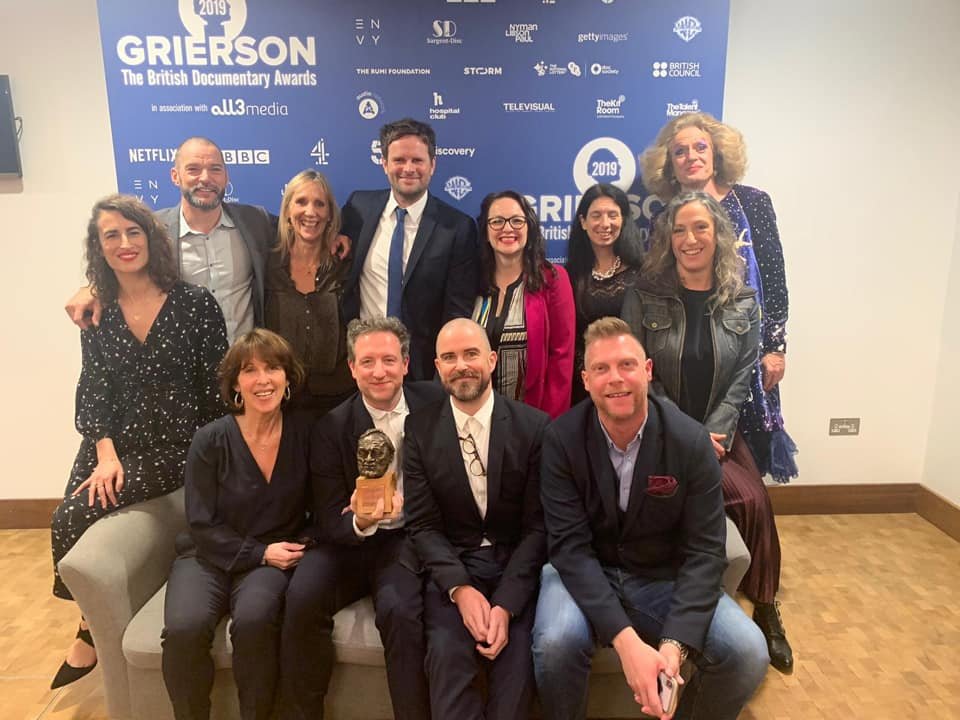Small Biz Lessons from TV Show Storytelling
For the first twenty years of my working life I worked in broadcast television on some of the biggest factual formats and brands in British TV. From The Apprentice to MasterChef, Ramsay’s Kitchen Nightmares, Googlebox and First Dates, I enjoyed two decades of a varied and exciting career.
I filmed in amazing places with amazing people, such as Number 10 Downing Street with the then Prime Minister David Cameron, stately homes, exclusive private members clubs, aboard cruise ships and private jets…it all sounds very glamorous but there was also a lot of hiding out of shot…like the time I directed Sir Richard Branson and Richard Reed of Innocent Smoothies fame by kneeling on the floor behind a wing-backed armchair. Glamorous, right?
As my life changed to include a husband and two small children, jetting off on location wasn’t a viable option for the wellbeing of my family.
My first career pivot was setting up a luxury serviced accommodation business in Cambridge. I love the creativity, customer-service and organisation skills that my business demands of me.
Through a chance encounter, my second business, Anderson Rossiter, morphed from simply offering virtual assistant support to working with small business owners to grow, develop and scale their businesses.
When I’ve reflected on my journey through TV, I’ve realised that there are many parallels between creating a TV series and running a small business.
Television producers (the small business) produce a series (the product) that the audience (the customer) will want to watch (buy), engage with, talk about and share (referrals) and return to (brand loyalty).
Here are the ways producing a TV show can give another perspective on how to run your business…
The Audience
Months before anyone in TV even thinks about picking up a camera to film anything, development teams, heads of companies, commissioners and producers have a crystal-clear picture of who they are trying to reach with a particular series - the audience. You might think that audiences are all pretty similar, but consider the people who might tune into Love Island, and then think about who sits down to Newsnight. Originally, they both went on air 10pm, and there might be a few people who watch both, but the core audience is two very different sets of people.
So how do we know how to ‘speak’ to the right audience?
We get to know and understand them, by building a picture of them…where do they live? What gender are they? How old are they? What soci-economic group do they belong to? How do they communicate? What is their language - by this we mean, how do they speak….a 15 year old will speak very differently to a 60 year old, they will have very different expectations about what they want from their TV output.
Having this information informs so many different elements of how we go on to produce the tv series; knowing your ideal customer should inform how you run your business.
Ask yourself these questions to define your ideal customer:
➡️ Are they a particular gender?
➡️ How old are they?
➡️ Where do they live?
➡️ What sort of job do they have?
➡️ What is their relationship status?
➡️ Do they have children?
➡️ Where do they go on holiday?
➡️ Where do they shop?
➡️ What do they do to relax?
➡️ Where do they go for fun?
➡️ What do they eat?
➡️ What is their pain?
➡️ What problem can your business solve for them?
Grammar
A great TV series will take you into a world, with a distinctive way of speaking to the audience (the customer). In TV we call this grammar, and each series I’ve worked on has a different grammar. For example, anyone who takes part in a tv series ultimately is a contributor. However, in The Apprentice the contributors who take part are never described as contributors or contestants even though they are essentially in a competition. They’re candidates - candidates for a job or business partnership. That tiny detail is important because it subtly reinforces that these people are vying to be a business partner of Lord Sugar.
Take another series like SAS: Who Dares Wins on Channel 4. The people who run the course are never described as course leaders. They’re the DS. Of course, this is borrowed from real-life, but by using this specific way of describing them, it heightens the authenticity of the world the producers are creating.
Another way that TV series ‘speak’ to the audience is the voice over. Think again The Apprentice, the voice over is a very distinct style. Clipped and factual, there is no fluff or humour here. Now compare it to Come Dine With Me, where the voice over is king! All of the footage of the contestants cooking and serving their competitors is made even funnier with the witty one-liners that are spread liberally throughout each episode; without it Come Dine would not be half as brilliant.
The purpose of grammar is to speak in a way to the audience that will engage them.
➡️ What language do you use to grab the attention of your ideal customer?
➡️ What connotations are there for the words that you use to speak to your customer? For example, in my property business, I don’t have clients or customers, I have guests who stay in my properties. The word ‘guest’ has a different set of meanings and gives different images that pop into your mind; guests are people who you invite into your home. My properties are a home away from home for my guests…this language reinforces the luxury atmosphere, properties and service I am selling.
➡️ Do you have a set of regular words, phrases, slogans or taglines that you continually return to?
➡️ How do the words you choose to use in marketing and how you engage with your customer reinforce the essence of your business?
➡️ When was the last time you assessed how you speak to your customers?
Mise en scène
Mise en scene is a French term that includes the style of a shot, sets, props and lighting. Here, I’m also going to include music and pace of a series.
Let’s compare two of our biggest food TV shows in the UK: MasterChef and The Great British Bake Off. Both are competition shows, both involve making food, both are very different from each other.
MasterChef takes the audience behind the scenes into the world of fine dining, where it’s hot, sweaty and intense. The shots are close up of flames, knives chopping meat, beads of sweat from the contestants as they push hard to produce the best food possible as an often angry chef breathes down their neck. This intensity is reinforced with fast-paced editing accompanied by energetic dance music. Even the MasterChef logo of a red ring is meant to invoke a hot metal grill for searing meat - cooking doesn’t get tougher than this, does it?
Now think about The Great British Bake Off with its sweeping shots of a beautiful marquee positioned in a bucolic corner of rural England, gingham table cloths abound among bunting galore with a pastel palette of baking paraphernalia and retro fridges. Invoking summer fetes, the nostalgia GBBO gives the audience is worlds away from MasterChef.
All of these elements come together to form that series’ brand. Masterchef and GBBO are similar types of TV shows with two very different brands. For each formatted show in the UK, there is a ‘format bible.’ A format bible is written by one of the producers at the end of the first series for any future series that might be made. The ‘format bible’ details every element of the series and is a vital document to ensure consistency across multiple series.
➡️Do you have a clear brand?
➡️Assess your brand; what do your colours, fonts and messages say about your company? Does it solve your ideal customer’s pain point?
➡️What feelings or emotions does your branding evoque in your ideal customer?
➡️What atmosphere does your branding create?
➡️Do you have a format or brand bible where your fonts, colours, grammar, flyers, social media posts etc. are saved in one handy place?
Subject and theme
First Dates is another series that I’ve had enormous pleasure to work on. Each episode sees hopeful singletons go to a restaurant rigged with cameras to go on a blind date.
You might be forgiven for thinking that this series is about going on a blind date.
And to an extent, you’re right. But what this series really sells you is love. It’s a universal theme that a large audience can connect to. This makes it easier to sell.
Grand Designs - the series that follows members of the public as they build their own homes. The subject is building a house, the theme is being a maverick who wins against all of the odds. Think about The Repair Shop. Each episode sees a much-loved item dug out from the attic that’s lovingly repaired by an expert of an often forgotten craft. The subject here is the repair be it glass, wood or metal. But the theme is nostalgia, a sepia-toned reflection on our past when everything was just a little bit better than the 4k hyper-real 21st century.
But why do TV production companies bother to do this? First it’s because themes resonate with the audience on a bigger level than subjects. Second is because it informs all of their marketing. First Dates know it needs to go in hard on the theme of love, The Repair Shop pushes nostalgia.
➡️Look at your product or service and think about it in terms of subject and theme.
➡️Can you connect your product or service to a bigger, universal theme?
➡️What are you really selling? Clue: it’s not your product or service!!
➡️How can you reflect a theme in your branding or the grammar of how you speak to your customers in your marketing?
That’s a wrap
Moving from working as a TV producer to being a small business owner has been a bit of a learning curve, however there are a lot of similarities. At the heart of both is a requirement to really know your audience, use engaging language, to create a strong brand, and create content that really hits home.
By using my transferrable skills from TV production, I've been able to create business strategies that not only draw people in but also build real connections. Whether it's through luxury accommodations or business support, it's all about understanding and speaking to your audience clearly, authentically, and with a bit of creativity.
As you go on your own business journey, remember your business, like a great TV show, has the power to captivate, inspire, and build loyal fans.


